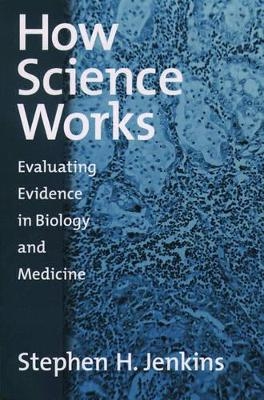
How Science Works
Oxford University Press Inc (Verlag)
978-0-19-515895-3 (ISBN)
One week, red wine is good for the heart. The next week, new reports say it's bad for the health. So which is true? Anyone who's ever read science news with fascination, or who's ever been confounded by conflicting stories will appreciate this book. Taking a look at some true to life contemporary news stories, the author assesses recent studies on topics ranging from vitamin C and caffeine to pollution and cancer. With straight talk and a passion for the whole project of science, he demysifies the cult of the expert and sheds light on the nitty-gritty details of scientific processes. Any scientist loves a challenge, but the biggest challenge of all, observes Jenkins, is shared by scientists and nonscientitsts alike: how to make practical decisions in light of ambiguous evidence. Promising no simple answers, this book does offer excellent food for thought for people pondering that next glass of wine.
1: Introduction
2: Do Vitamin C and Other Antioxidants Benefit Health?
3: Can Police Dogs Identify Criminal Suspects by Smell? Using Experiments to Test Hypotheses about Animal Behavior
4: Why Are Frogs in Trouble? Complementary Observations and Experiments to Test Hypotheses in Ecology
5: How do Animals Find Stored Food? Strong Inference by Testing Alternative Hypotheses
6: What Causes Cancer? The Complexities of Causation
7: Why Do We Age? Different Levels of Causation as Complementary Explanations
8: How Does Coffee Affect Health? Combining Results of Multiple Studies
9: How Will Climate Change Affect the Spread of Human Diseases? Models and the Perils of Prediction
10: Conclusion: How Science Works and Its Role in Society
Appendix 1. Using Data for Twins to Estimate Genetic and Environmental Contributions to the Risk of Cancer
Appendix 2. Precision and the Power of Statistical Tests
Notes
References
Index
| Erscheint lt. Verlag | 16.12.2004 |
|---|---|
| Zusatzinfo | 3 halftones & numerous figures |
| Verlagsort | New York |
| Sprache | englisch |
| Maße | 231 x 154 mm |
| Gewicht | 336 g |
| Themenwelt | Medizin / Pharmazie |
| Naturwissenschaften ► Biologie | |
| ISBN-10 | 0-19-515895-4 / 0195158954 |
| ISBN-13 | 978-0-19-515895-3 / 9780195158953 |
| Zustand | Neuware |
| Haben Sie eine Frage zum Produkt? |
aus dem Bereich


